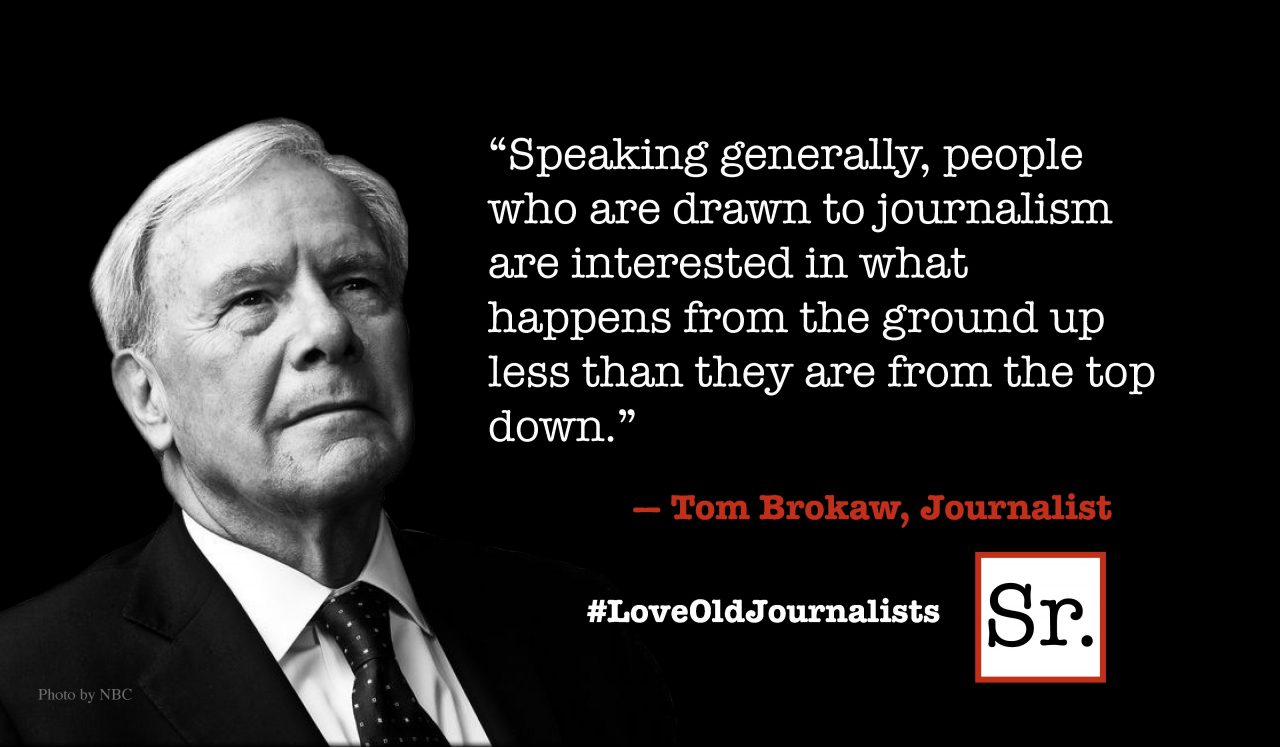I am quick to admit that my occasional political commentaries flow from my biases, long-held presuppositions that to this day remain in tact. Do you know anyone who comments on current issues without bias? Some of the more popular TV and print commentators should not be heard or read without a heavy sprinkling of salt, even if you agree with much of what they offer. I think of Sean Hannity of Fox News on one side and Rachel Maddow of MSNBC on the other.
For me the most dedicated and trusted journalist is Bill Moyers. I tend to believe whatever he has to say, even while I run it through my own take on reality. From his early days working with LBJ he rarely missed the target, misrepresented the facts or mishandled the underlying issues.
But there is another commentator whose judgment I also continue to trust. For many years I have affirmed almost without exception what David Brooks has had to say.
I never miss reading his comments in The New York Times and listening to him on the PBS Friday News Hour. Even if he increasingly reinforces much I already hold to be so, the word that has rung true about him is “authentic.”
I trusted Brooks when he was far more conservative than he is now. He came from a Republican political tradition articulated by William Buckley, Irv Chrystal, John Danforth and others. But that party has now been high-jacked by President Trump.
So it was with high expectations that I opened Brooks' recently released book “The Second Mountain” (Random House, 2019). To my surprise the book is not about politics, the Mueller Report, Donald Trump or the 2020 elections. Instead, Brooks focuses on a series of life’s principal decisions.
He begins by examining the disaster generated by generations that seem to have reduced life to “let me be me” and “do your own thing.” The resulting individualistic ethos introduces a devastating erosion of community, Brooks claims. He then outlines a series of life-centered struggles: choosing a vocation, courtship and marriage, the structural integrity found in the thirst for community, and religion.
The search for God that continues to command Brooks' attention also commands mine. That search is a relentless pursuit of life’s ultimate source and meaning, what Paul Tillich called ‘”the ground of being.”
Brooks' profound autobiographical exploration began with a classical Jewish childhood in Wayne, Pa., centered on the family’s Shabbat meal and then on the rituals found in his neighborhood synagogue. The biblical stories beginning with Moses and the 40-year wilderness journey following the exodus became central to his and his family’s’ identity.
God was embedded in these stories, but essentially they were about a people’s long journey experienced from the classical Jewish perspective. For Brooks the stories also later defined and articulated a Judeo/Christian understanding of faith.
Brooks' chapter on philosophy and faith is a theological masterpiece that equals many to be found in the thousand weighty books I have digested in 70 years of pastoral and academic investigation. If I were back in the classroom, it might be required reading. It might also be a prerequisite for anyone wanting to explore what it means to consider Judaism, Christianity or any other religion.
Somewhere along the way Brooks discovers Mother Teresa and her dedication to the wretched of the earth. While she never was quite ready to affirm such doctrinal propositions as the bodily resurrection of Jesus, she believed that as Jesus offered himself for the world’s nobodies he fulfilled God’s eternal unqualified love for the creation.
Brooks eventually finds the gospel of Matthew, which includes the Beatitudes and their formula for living a God-centered life. In these teachings Jesus challenged Brooks not to believe doctrines about him but to follow him.
Christianity offered an invitation to take on discipleship. For Brooks that meant to go anywhere Jesus might take him. Here he encounters the heart of theology and the quest for ultimate meaning. And that invitation is what Brooks continues to work out.
This is not a story about conversion from one religion to another. Brooks remains a Jew, but he has found in Jesus a new invitation to the God-centered life. For him now religious systems are only fingers pointing to that which is ultimate, which is God. And that definition of faith defines most Western religious thought.









